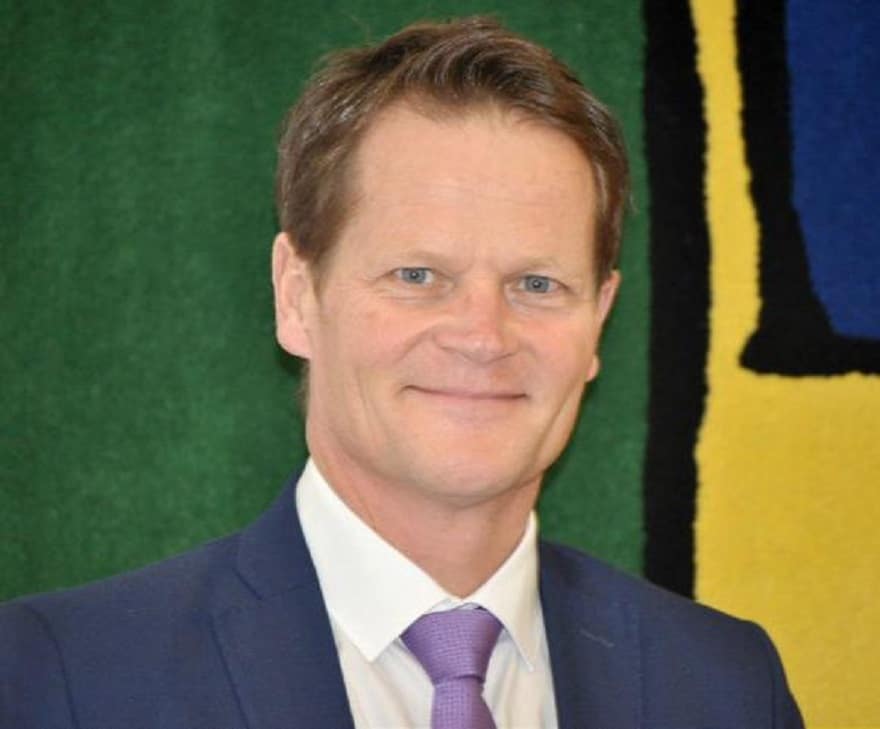"A prize must always bring something too"
ETH is considered a particularly successful "breeding ground" for spin-offs. This seemed to be the case in 1996, when ETH graduate Dr. Peter Staub founded his company pom+ Consulting AG, now a successful service provider for the real estate industry. In addition, the company has been following the path of excellence according to the EFQM model for years and has also been an award winner at European level.

We meet Dr. Peter Staub at the Alpensympo-sium in Interlaken, where he took part in an entrepreneur talk on 10 January 2017. Shortly before our interview, musician and extreme athlete Joey Kelly gave a presentation with a few insights into his life, which has often enough followed the motto "No Limits".
Mr Staub, when you founded your company in 1996: Did you also follow the principle of "No Limits"?
Dr. Peter Staub: When the company was founded, the goal was of course to create growth. We didn't really back that up quantitatively; at the beginning we were talking about maybe 20 employees as a goal. Our initial aim was to gain a foothold in the market. At that time, I already had a family and no outside capital - so we had to approach the whole thing rather cautiously.
What was the business idea at the beginning of your company? What did you want to earn money with?
Our idea was to optimize the life cycle of real estate with the help of data.
So at a time when no one was talking about Big Data... ...
exactly. This then led to the considerations of which data was needed in which phase. We thought about how data could support the process. Step by step, we developed further and focused on the real estate industry.
In its 20-year history, your company has received a number of prestigious awards, some of them after only a few years of existence. Were such awards part of the corporate strategy?
Yes, that was a clear part of the corporate strategy. After all, we do our own consulting in process modeling and organizational design. We always say to ourselves: What we expect of our customers, we must also live ourselves. That's why we quickly had ourselves certified with ten people. We then looked around for other possibilities and finally ended up with the ESPRIX Foundation. The ESPRIX Swiss Award for Excellence was a beacon for us, and we wanted to win it. We then realised this step by step: in 2005 we won a podium place for the first time, then in 2008 we won the main trophy.
So a clear pursuit of goals?
Yes, we had clear intentions. Sure, not everything always succeeds, but it's important to have a spirit to live by.
How do you bring this spirit into your company and your teams? The EFQM model, which is behind the ESPRIX award, is quite complex. So when you recruit people, do you make sure that they bring such a spirit with them, or is it simply "inculcated"?
It takes a special kind of person. We also ask our employees whether they enjoy team events and are willing to meet with each other in their free time. It's also about whether they can relate to our values. Afterwards, much of this is of course a question of prior experience.
Where do you see the main advantages that the EFQM model can offer?
The model can be applied on different levels. You can practice it very roughly, that is, there are two elements, the enablers on the one hand, the results on the other. This is essentially about using the limited resources I have in such a way that I can achieve the best possible results. These are the fundamentals that we also stand behind. Of course, the model can be further refined: it has an improvement cycle that can be used to continuously improve. Here, however, we would have to take better account of the fact that in the course of ever faster cycles it is hardly possible to really measure everything. For example, the principle of "trial and error" is not sufficiently anchored.
So you see an explicit need for the model to catch up?
I think an urgent redesign is needed in this area.
In 2012, you were able to win an EFQM award at European level. How sustainable is the impact of such awards? Primarily internally, but also in terms of external perception?
There are both. Internally, of course, people know that this is our way. But the awards have also helped us to become better known not only in the real estate scene, but also outside it. That has done a lot for our image, people can see that we are an exciting company that doesn't just do something, but is simply good.
And I suppose you have another award in mind as well?
I think so. This culture should continue. Whether it is the European Excellence Award remains to be seen. We are also putting a question mark over it, because if we want to take part, then only if we can gain a competitive advantage from it. We are still questioning this.
So no prize at any price?
Exactly. A prize must always bring something too.









